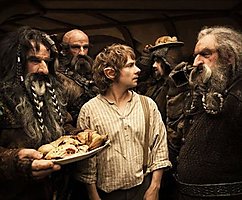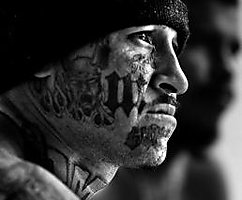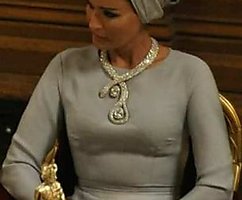The secret of all children
 Bashny.Net
Bashny.Net
Can improve only what you understand. If we want to educate our children, beginning with them should at least meet you. Do you know their children? I think not. In the inner life of our kids have a lot of things hidden, about than vaguely aware, but are afraid to articulate itself even the most attentive parents. Children have them the most important secret that makes them masters of their parents. This secret is really powerful, because once you learn how, you will be the lords children.
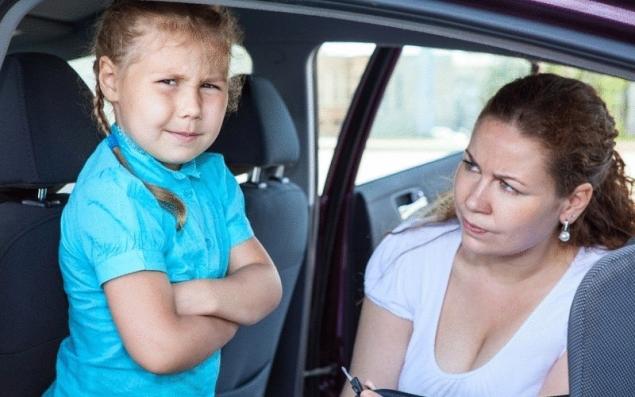
While tip: this is the main secret comes to children's emotions, feelings and experiences. I dealt with this topic my entire adult life, all my coursework and thesis students of the faculty of psychology of Moscow state University. M. V. Lomonosov was devoted to one topic: the topic of emotions, feelings and experiences.
Where are emotions and feelings? Why? As a person masters the art of handling the emotions? What are the stages of emotional development goes through each of us? – seemingly simple questions. You know the answers?
I did this theme years and decades, but no matter how much I read scientific papers, I always had the feeling that I don't talk about emotions and feelings the most important things... And only fifteen years ago, I – "opened"... I realized that since I became a completely simple and obvious, which suddenly becomes as obvious to everyone I introduce this new vision of the nature of emotions and feelings.
And most importantly, when you learn what emotions, feelings and experiences, you simultaneously learn the secret of all children.
So, you offer a Theory of social psychoanalysis of emotions. Psychoanalysis is an approach, when the behavior of adults is derived from the events of his childhood. A social psychoanalysis approach, when the events of childhood, the emphasis is not on natural biological desire, but primarily on the social situation of child development.
For fellow psychologists I note that in developing this approach, I relied primarily on the cultural-historical theory of Lev Semenovich Vygotsky: the idea of the child's activity and the formation of internal mental functions through separated from adults external collaborative activities. Yes, that's right in our life are our emotions, feelings and experiences.
As babies control their parents
The baby seems to need very little: to eat, sleep, be warm and dry, well, still be on the arms of mom. A bit, but without help from an adult he can do. Babies still have no teeth, they have weak arms and not developed eyesight, the newborn baby is not always able to roll over, can't move without help from mom first, he can't even have milk from mother's breast! The baby is physically helpless, but in fact – well-armed, because he has a mighty Arsenal: his natural emotions. This is primarily a revitalizing complex (a child's smile, eyes, handles are drawn), surprise and interest when this is not enough – whimpering, crying and loud or (demonstration of discontent and aggression or fear and disgust).
More precisely, it is rather concepts of emotions, it's more expressive of movement than an emotional experience, but the parents "read" them as emotions, and children don't mind. They still as adults read their expressive movements, they are important, so they can find the parents to manage.
Typically, the initial management parents this is enough.
A child is not a helpless creature, is a trained combat unit, a small energetic predator that uses any mistakes of adults, it is easy zaprygivayem on the neck of the parents and exciting power over them. If a child wants to be in the arms of my mother, he runs to mom. If the mother has not realized that he was smiling at her. Usually this is enough and a child is on the hands. If the mother did not handle the child insists, whining, cranky moan. Usually decent, sensitive mother for rent. If the mother is caught and prepared "with his bare hands will not take it" – child includes heavy artillery: cry, crying, he's shaking... What mother can resist against it?
At a time when an adult comes to a small child with their tasks, the child makes the adult that is part of his plans and interests. The children know what they want and get it.
Situation. I'm at the airport, flying to a business trip. See a family of four adults: mom, dad, grandma and grandpa. In the hands of the Pope, as a little child, no year. A child, lively eyes shooting to the side of her grandmother, reaches out to the grandfather. Shows grandma and grandpa that he is interested in. Grandpa is happy, raises her hand to the child, the child gets to him, the grandmother is upset. But then the child turns to face the naive grandfather and his face crying. Grandpa washed... Mom picks up the child from his grandfather, he pressed against her, but already looks at dad... the Child is playing these older, confronts them with each other, having fun on the full program. Thus, it seems that the adults in this situation didn't really understand who is actually in this situation controls them.
So, remember: emotions of children — first and foremost method of controlling parents, and until parents raise their baby, a baby at this time is learning to manage them.
The woman said, the 1-month old daughter was ill with bronchitis. During the illness of the child to understand that mom immediately flies to the sound of cough, cough, and began to use it. If the daughter really wanted to talk to me, and the night whimpering and I didn't react, then she started loudly "chechekty". I'm sleepy, flew to her, and she told me, smiling sweetly and waiting for me with her I'll play... I decided not to reinforce it, nighttime has ceased to respond to "cough, cough", and all was well.
Children keep track of what works for parents and it. For what? So parents do what the kids want. While we think that raise children, the children at this time educate us: teach us how they behave.
Copy adults
Where did the children come from the first social emotions — frustration, resentment, surprise? It is not innate and learned emotions, and children copy these emotions in the first place with us.
Children copy the adults happy. Copying the behavior of adults, children master this world. Children like any physical activity, they like to not only run, but fall they like to be offended and shy, they like to kiss and fight, they like to copy adults when they smile and when they fight. Children copy us when we smile at them: they copy our smile. Children copy us when we make a surprised smile, and we suddenly see the astonished eyes of our child. The child copies our arms and shoulders when we are tired will clap their hands, and will soon learn to do the same tired shoulders. Children make rubbings from us our fear and our neuverennosti, and when we swear vigorously at them, they with their inherent energy to remember all the details to somewhere also convincing to start screaming at someone else.
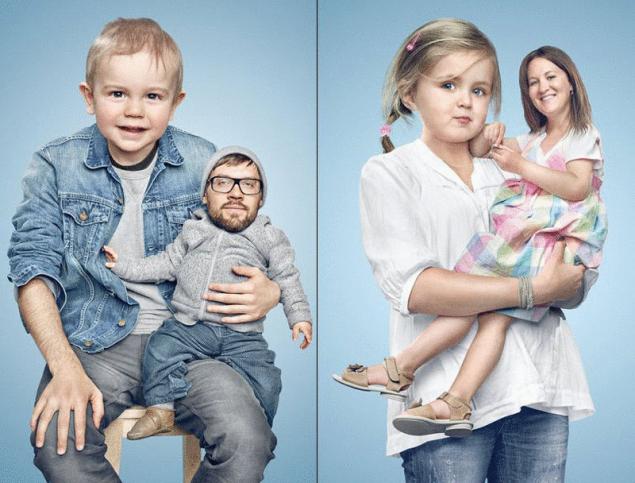
Lively, cheerful child likes to move and play, and play a sound, face and breathing that adults call emotions and feelings is one of his favorite games. At this age the child easily, effortlessly maybe just at the request of the adult begin to cry or to laugh, alternating in the pleasure of laughter, joyful screams and miserable cries. Children have fun with emotions, for them it is fun and lively. Be afraid for them just as fun and lively as yell with delight, and to cry loudly — as much fun as any other noise. However, new emotions for children — not just entertainment. Later the pleasure to play with emotion, they turn to the search for new tools in the management of parents.
Skills wailing in the service of the child
The main emotion of the child from one to three years, is still the crying, but now it is crying in the wizard. The child develops emotions and feelings and as a conscious request for help, and as a way of psychological protection.
The story-a recollection: "I three years, broke a mug and cry. I well remember the conversation with my grandmother. She: why are you crying? You feel sorry for the mug? — No. — Why are you crying? — That you have not scolded for the broken mug. — Did I scold you? — No. And suddenly will be? ... I remember crying qualitatively with tears. However, I realized that I was crying not because of the mug. It was "outpacing" the cry on the topic: how to scold me, I already pay!
Most of the emotions of the children — no reaction, not a mechanical reflection of your actions, and their small creative projects. Once the study, once a game, once a test of your strength, once with pleasure revenge.
A small child is an active relationship management. The child always a lot of ideas and plans, and what do you have to be to decide not only you, this is your General romance. And perhaps not you, but the child will identify someone who will learn and who will put up with.
If you didn't buy him the game at his request, he will make you cry, but it's not a miserable offense, and the attack on you as revenge for your bad behavior. When the child will forgive you — he will decide himself in the history of your relationship a major player, often the child, and you are a puppet in his hands.
Good thing the children are usually forgiving and forgive us fairly quickly.
If the baby is crying as its only insists on the fact that it really is necessary, the child from 1 to 3 years crying and achieves what he needs and what he just wants. He wants to have fun, I want different feelings, I feel that the focus is not on others, and he wants games and gifts... Now the child's needs are different — honest and thought out, and his crying becomes instrumental becomes for the child a tool to achieve its objectives.
Dad says: I Have twins, a year and three months. Agree, to years my girls really cried only in the case of wet, pooped, hungry, farting, sleep, overload of impressions, teeth... And here is a lament to pay more attention than the sister! Crying does no "good" reasons, a clear instrumental cry! Since we are not "conducted", the crying suddenly stopped and daughter quietly moved on to other things. Of course, we didn't just ignore undesirable behavior and reinforce desirable immediately came up when my daughter asked me about it acceptable. Somewhere for a week and a half trying to put pressure on me stopped.
Child from one to three years is able not only to instantly start and stop your cry, but to find the right crying under a particular destination. Mom can operate one on my grandma more. The Pope, for example, can only act desperate cry that escaped grandma and explain to dad that he is. The child picks up these tools for the parents, picking up, playing them like a fiddle. Have you noticed that kids have different personalities: one with my mom, grandma and another with their father third. The character of the child is his method of influence on you personally. Kids are smart and savvy, they methodically pick what works for you personally.
The story of the Pope: Masha 2 years, sitting, muttering something to himself. Listened — she designs future dialogue, says for himself and for mom: "Mother, drink! Mom, I want to drink!" — "Here, Goldilocks, have a drink!" "I don't want, this water is nasty!" She rehearses what will be her joy and problem parents.
This is the time when the child develops not just crying, but the real hysteria. Usually kids start tantrums podglyadev as it is with other children, and then trying a tantrum to their parents. If the parents are in fact allowed a tantrum and his actions reinforce it, the child begins a tantrum actively use.
How to deal with tantrums and where to get the nerves to stand the baby crying? The answers are simple: do not allow tantrums from the beginning. Remember that hysteria is an emotion, and this in turn — only signal key persons with the purpose of conveying information to them. On the other hand, tells your child how you can succeed without crying, namely teaching him to ask. The magic formula: "When you cry and scream, I don't understand. Tell me quietly what you want?" If the child was able to stop crying and asked you quietly, if possible go meet him, correct the child's actions should be rewarded. It is important that if a healthy child gets all that he really needs, he requires less of the fact that he just wants.
The development of child emotions children's culture
Children learn about emotions not only in adults. Somewhere from the age of three, when children begin to show interest in peers, they begin socialization: the development experience of children's culture. In children — its, children's culture: their games, their entertainment, their secrets and their language, its the experience of interaction with the adult world. All the best finds ever were made by one of the children then collected, stored and transmitted to new members of the children's community. Children copy each other's behavior, learn rhymes and rules of children's games, learn the faces, cries, moods, and other emotional outbursts of children who decide first and foremost task of a successful impact on adults.
Someone from the children first found as adults acting hysterical, now this find is kept in the Golden Fund of children's culture. Once children discovered how to operate on grandmothers compassionate eyes and helpless hangers, all children's community immediately took this discovery into service. Children copy each other all there is to do interesting and that can be used to influence parents. And miserable disorder, heart rateplease parent, and the children's carefree laughter, which the happy parents are ready to forgive the dirty footprints on the clean floor, all of it was successfully copied from his associates.
Playing with each other, children learn. Observing the behavior of each other, children learn. Tracking the reaction of adults to their behavior, children continue to learn. The child soon becomes convinced that parents impress his fears and resentment, his enthusiasm and hysteria. In fact, the children initially did not know what fears and resentments, but when they see how facial expression, text and tone of the other kids run their parents and hear the parents call all this "you offended", they are born natural interest to do the same. When they realize that resentment can be influenced, they have a desire to learn the offense.
I wonder what, if not to control the situation, children learn primarily negative, learn emotions negative. Children learn to fear and be ashamed of, learn to be bored and offended, learn to be helpless, tired, dull, trial, master "confused" and "upset", later "to despair", try on hysteria, the desperation, the horror... When it suits them, children learn to hurt.Please note: if adults do not interfere in this process and do not control the situation, children in this natural process of socialization learn primarily negative. It would seem it's strange, why children are depriving themselves of the joy and vitality, why they need to learn to be offended, bored, suffer and become a trial? However, this kid's choice is the iron logic: negative emotions give maximum returns in their interaction with parents. It is these emotions parents being the easiest.Indeed, if we rely on the parents for the fact that the cartoon was not allowed to see the parents I can change the permission denied, or give candy as moral damages. If a long dress to kindergarten, then, in the end, mom will want me to wear in the garden. The list of examples is endless...
Five to seven years the majority of children have emotions masterfully. At this time, children's emotions are going, is willful and arbitrary. Know who and why worry, do not worry, when to worry about no one. At this age, children's emotions are quite arbitrary, and children select, train, and rehearse them consciously.
Children know that they are doing all of your emotions, and perhaps that is why they are so "cruel" (which adults) to pay the other child next to him. When one of the children crying hysterically, adults get nervous and not know what to do, how to reassure the child. How does the child respond the same age, standing next to? — Does the child looks at all this with indifference, the child crying does nothing. Why? Yes, because he recently similarly, hysterically crying, because it knows the price of this cry...
An important feature of this age is that this time the child cries, honestly, to whom and for what. "I do not you cry, I cry! — What are you crying mom? And she and her sister sits, let me play!". The emotions of a child in this period consciously and intent: the child always knows who is crying and why.
Children do not worry when to worry about no one, when they realize that their experiences will not be heard. It is known that in children's hospitals children in tears saying goodbye to mom, quickly stop crying: it happens when they realize that their cries no one here to respond will not.
Situation. At airports the new rules — you can not carry the liquid with a volume of 50 ml. We have learned that, when the control of our bags pulled out and began to throw... Terribly healing Manov honey and a special super shampoo — in tank, a pack of juice in the tank, the bottle of Sprite into the tank. I was looking at the faces of my children: what was there? Well, maybe confusion. Surprise. No offense, no protests. Went on — no upset eyes and shoulders. If a bottle of Sprite thrown I or my mother would have been a storm of outrage and a terrible disorder. And then the children were not upset. That upset something? No one! — Curiously, later on this subject talked to the wife, she was interested in another point: "You know, I think that if this officer I would have made a scene, got upset and started crying, I guess the shampoo they'd given me... And I was calm and shampoo lost". So: strong relevant experience solves situational problems that other means to solve it is impossible.
For four years, from 3 to 7 years, children master the main tools of children's culture. In the age of 3 to 7 years the child is masterfully develops a core set of social emotions, becoming a master of emotional games and manipulation.
Adults teach children, adults emotions
Up to a certain age children learn emotions themselves, copying them from adults or from their peers. Gradually, the process involved and the adults: parents and others begin to educate their children adopted the language of emotions and emotional reactions.
I've seen manuals for kindergarten, according to which they were supposed to teach kids, in some cases to rejoice, when to worry and when to empathize. And how to do it right... no matter How it seems strange, but kids really have to explain.
If children grasp the emotions of those that help them to influence adults, adults teach children the emotions and attitudes that are comfortable and interesting adults that help them more successfully manage children. First and foremost is a sense of fear and guilt.
As for fear, the young children it almost not familiar with. Children creep to the edge of the sofa, reach for the fire, climb into the river, climb the house on window sills and other horror... of Course, babies have basic reflexes (fear) to loud noises, a protest against pain and a predisposition to reactions of fear, some possibly dangerous things in life (height, spiders), but the bulk of the fears that we see in children is the result of learning. Despite the fact that fear — the basic, innate emotions, innate is just the ability to be afraid, the ability to freeze or run away from danger. And that is what needs stopping the need to run away — this list is not congenital, this is the result of social learning.
Listening to parents, friends and watching cartoons, children learn the accepted vision, learn social interpretations that is terrible and what's not that terrible really, but that is an absolute nightmare. Children learn the accepted figure of fear, with what words, with what face and what sklikivanie need to fear in different situations, as they are afraid of cockroaches, and how to be afraid of the teacher. Learning fears is largely due to the natural suggestions: not only words, but the situation itself, including the natural reaction of parents.
But the guilt, as the guilt initially instilled through punishment. When the unwanted behavior the child's parents called the "bad" and was accompanied by punishment (physical punishment, the pain, the feeling of loneliness if the parents left the child alone, etc.), the child as the repetition of punishment, perceives his actions as "bad". If the penalty for "bad" actions is repeated enough times, the fear and pain occurs when you condemn the act of a child does automatically, even in the absence of a "teacher", which is the sense of guilt instilled. A feeling of guilt: reactive, automatic emotion on the last punishment inflicted on people. If the status of guilt occurs frequently and is supported by others, it becomes habitual learned behavior and a way of life that a person starts to walk, how to blame, hump the shoulders, as a defendant, and to wear an unhappy face.
In fact, at a certain age a sense of fear and guilt do children need, the only question is their extent and understanding, where appropriate. Anyway, in the family and on the street, in kindergarten and in school, but the child is with the surrounding adults and the influence of culture as a whole develops a sense adopted in a given society, in particular, are attached to the feelings of friendship, love, gratitude, patriotism, and other high feelings. Thanks to socialization occurs in children, the development of concentration and will, the boys learn the role men and lay the Foundation for the future role of father, girls learn female roles, interiorizing values to be a wife and mother, to master the necessary skills.
Once this is called social programming, once the development of human culture, the transformation of the human species into man.
Where did kids get will? Will is sounding within us demanding, strong voice of his father. The mother may request, to exhort, to persuade the father says what needs to be done. If you are in childhood or adolescence was such a voice (sometimes it can be a voice coach or Sergeant), if this voice is your law and began to organise your life and behavior, you know what will. If this voice you have to speak with yourself and others — you are a strong-willed person.Children learn to mask their manipulations
Children grow up, they are not so reckless regret, they have closely — and the more effective instruments are given to children, the more important is masking. What is forgiven little, already can not forgive the five-year, and if parents unravel the secret of the baby crying and realize that for children it is not the suffering but the game, children will begin to get over your crying isn't Kinder Surprises, and the Pope. Mastering masking — long process that starts somewhere at the age of three and ends only to adolescence.
First, the children know that offended is "I hurt myself for you", but closer to school age children find, remember and train new wording: "YOU hurt me." "Why are YOU so angry?" "Why do YOU hurt me?" "Why do YOU upset me?" I'm not the emotions do, they appear in me. Who appear — because of you. Is that you in me cause them.
Soon the children (together with adults) become convinced and believe in it, what they are to their emotions have no relationship. It is now clear that emotions are caused by others: parents, brother, weather, any other circumstances. Now emotions can not be controlled, they show themselves and I am not responsible for them.
The cloak is great, but it comes at a cost: the part of emotions in children really starts to occur inappropriately, just like that, without meaning, no spoiling life for adults and their children.
The third step in the masking of emotions, and most importantly, what children learn is connected to an external expression of emotion of these bodily dynamics. If earlier emotions — laughing, crying, or hurt — was more expressive motion of the face and living voice, that gradually the child learns to cry and hurt all over, raskruchivanie fear, adrenaline, rage and the noradrenaline to spin the flywheel and turn the wildness of the body so that to stop it is difficult. In fact, it is not so difficult, and the results are impressive: adults see that a child did not invent, he really captured the emotion and to such state child treated with much more respect.
In the adult language the child is going through. The experience is felt kinesthetically (experiencing) the dynamics of functional, physical and mental condition of the person.
Having mastered the bodily promotion, child, also reliable masking gets even additional prizes. What? See for yourself... On the Playground, two children did not share the car, didn't want to give in, both crying. Standing next to mom, ready to intervene. Who do they plead? Rather, they will be the one who cries louder and more desperate, who can not calm down. It prigolubit and the machine will. And second child, looking at this picture, remember that it is advantageous not to deal with their grievances. Similarly, children quickly learn to be helpless.Up to a certain time, the children do not hide that their emotions they can turn on and off almost instantly. But then, if one child is more or less sensible, a good control of their emotions, and the other is very emotional, which can not stop, can not get out from under the power of emotions, the adults in the event of a conflict between them usually decide in favor of one who's not acting like herself.
"He's crazy, he crazy, well, you give him a train to play! You're an adult, you're normal, and what he is, you see, he's not acting like herself, can not be calm! So, are you sorry?"
Children understand: the winner is the one who longest can't calm down, and learn to unleash their emotions to lose control over them. It takes months and years, but over time they master mode: emotion erupts and stops itself only gradually.
If we are offended – I can't. You quickly pass from the emotions go and be reconciled. And I can't move away from resentment, so I will not come to you. And if I started crying, I myself, immediately, to end this grief can't!
Children learn to make their emotions involuntary, children reach this and turn their emotions into what they already control.
If this is happening to us, our emotions become what they write in encyclopedias and psychological dictionaries: "Emotions are subjective reactions to exposure to internal and external stimuli↑". True — the result of years of work, we have learned to be emotional machines, our emotions now are caused not by us but by circumstances.
How much creativity is necessary for every child to turn their raw emotions in such formulaic and clumsy reaction?
Protection from peers and adjustment to peers
Somewhere around 7 years, children to hide from parents manipulative nature of their emotions, turning them into involuntary responses that occur in them in response to the actions of the parents. What loving parents will scold their child if the child is so upset, if he is suffering?
For example, my daughter does not like to do sports and likes to eat cakes. Of course, she's ruining his figure, but if the mother is sticking to her even about sports, even about cakes, my daughter has a ready answer: my daughter will be upset. "Oh, mom, this again?!" and cry... She knows that after this mother's heart falter, and she with his homilies will be left behind. Mom loves her and once again to hurt his daughter will not. Dad is even simpler: it's OK to hug and kiss, dad this is melting. And if not melting, it is possible conversely, in response to his demands offended to slam the door and more not to talk to him. Dad — not stand. The task is solved!However, while being protected in this way from the parents, the girl begins to come under fire peer: "Fat! Thick donut ate a candy bar!". She tries to be offended, but it's not helping, she got upset and started crying, and the children tease even more: "Crybaby-wax Shoe Polish, nose hot damn!". The more she worries, the more she gets... What to do?
Children learn to wear masks. Instead of manifesting resentment the child is silent, laughs, or shows aggression. That doesn't take the internal pain, but to survive it becomes easier. Outside, the children show what is accepted and appropriate, but sincere feelings are banned. In this regard, in adolescence arise intimate diaries where they can pour out their true feelings, and their private companies where you can say what you think and openly Express their feelings.
On the other hand, Teens learn how to conquer the status in adolescent companies, learn to play indifference and contempt. With the advent of interest in the opposite sex boys and girls learn emotions, making them more attractive in this respect: girls learn to flirt and giggle, the boys learn to care for the girls or show their disinterest. These games began as simple games like the show and image, but children quickly get used to these performances, personal master these social roles and make them part of their spiritual life.
The output of adulthood
To live in the children's position — whether with your family, and your loved ones react to your emotions, attentive to your needs. But sooner or later we will yield to adulthood, where our emotions will not respond no one... Sooner or later the child ends.
Childhood ends when boys and girls should get into social institutions, where there is competition and where we as adults must present themselves and their skills required to meet external requirements. In high school you need to learn in the army should unquestioningly obey the orders of the Sergeant, at work, need to work on your marriage you need to meet, and with the birth of the child have something to do with that shrieking creature that always you want... In these new situations the usual emotions do not work, and the habit of expressing feelings, experience, and starts right to interfere. The Institute of silly to be offended by a teacher who is not put off; on the job is unacceptable to be offended by a boss who reprimanded; it is pointless to get angry at colleagues who failed. In the best case you and your emotions can listen to, and at worst will hang the label of hysteric or fired.
Chef makes me a note, it is unjust. I told him upset. And the bastard type does not see that he was upset, and he continues to chastise me. I offended him, and the bastard makes me prize and exhibited in front of others. I told him how depressed went off, and then another, drunk cakes, and then another angry. And the best part: I go to escalate further and further, but these bastards don't react like they used reacted all normal, that is, people close to me.
However, each of us there is another possibility — we can look for friends and loved ones: those with whom we can continue to play the emotions as a child. Let life's hard and my emotions unresponsive, but among people, you can find those who feel me and understand: that is, they can continue to play our emotions like a child. I don't care: I offended him, and he was so upset... Joy! The body plays soul sings, he is a native, because I can be dearer than these painfully familiar experience. These people become close to us: our friends and loved ones. Our friends and loved ones — those with whom we can together to go back to my childhood... posted
P. S. And remember, just changing your mind — together we change the world! ©
Source: www.psychologos.ru/articles/view/glavnyy_sekret_vseh_detey

While tip: this is the main secret comes to children's emotions, feelings and experiences. I dealt with this topic my entire adult life, all my coursework and thesis students of the faculty of psychology of Moscow state University. M. V. Lomonosov was devoted to one topic: the topic of emotions, feelings and experiences.
Where are emotions and feelings? Why? As a person masters the art of handling the emotions? What are the stages of emotional development goes through each of us? – seemingly simple questions. You know the answers?
I did this theme years and decades, but no matter how much I read scientific papers, I always had the feeling that I don't talk about emotions and feelings the most important things... And only fifteen years ago, I – "opened"... I realized that since I became a completely simple and obvious, which suddenly becomes as obvious to everyone I introduce this new vision of the nature of emotions and feelings.
And most importantly, when you learn what emotions, feelings and experiences, you simultaneously learn the secret of all children.
So, you offer a Theory of social psychoanalysis of emotions. Psychoanalysis is an approach, when the behavior of adults is derived from the events of his childhood. A social psychoanalysis approach, when the events of childhood, the emphasis is not on natural biological desire, but primarily on the social situation of child development.
For fellow psychologists I note that in developing this approach, I relied primarily on the cultural-historical theory of Lev Semenovich Vygotsky: the idea of the child's activity and the formation of internal mental functions through separated from adults external collaborative activities. Yes, that's right in our life are our emotions, feelings and experiences.
As babies control their parents
The baby seems to need very little: to eat, sleep, be warm and dry, well, still be on the arms of mom. A bit, but without help from an adult he can do. Babies still have no teeth, they have weak arms and not developed eyesight, the newborn baby is not always able to roll over, can't move without help from mom first, he can't even have milk from mother's breast! The baby is physically helpless, but in fact – well-armed, because he has a mighty Arsenal: his natural emotions. This is primarily a revitalizing complex (a child's smile, eyes, handles are drawn), surprise and interest when this is not enough – whimpering, crying and loud or (demonstration of discontent and aggression or fear and disgust).
More precisely, it is rather concepts of emotions, it's more expressive of movement than an emotional experience, but the parents "read" them as emotions, and children don't mind. They still as adults read their expressive movements, they are important, so they can find the parents to manage.
Typically, the initial management parents this is enough.
A child is not a helpless creature, is a trained combat unit, a small energetic predator that uses any mistakes of adults, it is easy zaprygivayem on the neck of the parents and exciting power over them. If a child wants to be in the arms of my mother, he runs to mom. If the mother has not realized that he was smiling at her. Usually this is enough and a child is on the hands. If the mother did not handle the child insists, whining, cranky moan. Usually decent, sensitive mother for rent. If the mother is caught and prepared "with his bare hands will not take it" – child includes heavy artillery: cry, crying, he's shaking... What mother can resist against it?
At a time when an adult comes to a small child with their tasks, the child makes the adult that is part of his plans and interests. The children know what they want and get it.
Situation. I'm at the airport, flying to a business trip. See a family of four adults: mom, dad, grandma and grandpa. In the hands of the Pope, as a little child, no year. A child, lively eyes shooting to the side of her grandmother, reaches out to the grandfather. Shows grandma and grandpa that he is interested in. Grandpa is happy, raises her hand to the child, the child gets to him, the grandmother is upset. But then the child turns to face the naive grandfather and his face crying. Grandpa washed... Mom picks up the child from his grandfather, he pressed against her, but already looks at dad... the Child is playing these older, confronts them with each other, having fun on the full program. Thus, it seems that the adults in this situation didn't really understand who is actually in this situation controls them.
So, remember: emotions of children — first and foremost method of controlling parents, and until parents raise their baby, a baby at this time is learning to manage them.
The woman said, the 1-month old daughter was ill with bronchitis. During the illness of the child to understand that mom immediately flies to the sound of cough, cough, and began to use it. If the daughter really wanted to talk to me, and the night whimpering and I didn't react, then she started loudly "chechekty". I'm sleepy, flew to her, and she told me, smiling sweetly and waiting for me with her I'll play... I decided not to reinforce it, nighttime has ceased to respond to "cough, cough", and all was well.
Children keep track of what works for parents and it. For what? So parents do what the kids want. While we think that raise children, the children at this time educate us: teach us how they behave.
Copy adults
Where did the children come from the first social emotions — frustration, resentment, surprise? It is not innate and learned emotions, and children copy these emotions in the first place with us.
Children copy the adults happy. Copying the behavior of adults, children master this world. Children like any physical activity, they like to not only run, but fall they like to be offended and shy, they like to kiss and fight, they like to copy adults when they smile and when they fight. Children copy us when we smile at them: they copy our smile. Children copy us when we make a surprised smile, and we suddenly see the astonished eyes of our child. The child copies our arms and shoulders when we are tired will clap their hands, and will soon learn to do the same tired shoulders. Children make rubbings from us our fear and our neuverennosti, and when we swear vigorously at them, they with their inherent energy to remember all the details to somewhere also convincing to start screaming at someone else.

Lively, cheerful child likes to move and play, and play a sound, face and breathing that adults call emotions and feelings is one of his favorite games. At this age the child easily, effortlessly maybe just at the request of the adult begin to cry or to laugh, alternating in the pleasure of laughter, joyful screams and miserable cries. Children have fun with emotions, for them it is fun and lively. Be afraid for them just as fun and lively as yell with delight, and to cry loudly — as much fun as any other noise. However, new emotions for children — not just entertainment. Later the pleasure to play with emotion, they turn to the search for new tools in the management of parents.
Skills wailing in the service of the child
The main emotion of the child from one to three years, is still the crying, but now it is crying in the wizard. The child develops emotions and feelings and as a conscious request for help, and as a way of psychological protection.
The story-a recollection: "I three years, broke a mug and cry. I well remember the conversation with my grandmother. She: why are you crying? You feel sorry for the mug? — No. — Why are you crying? — That you have not scolded for the broken mug. — Did I scold you? — No. And suddenly will be? ... I remember crying qualitatively with tears. However, I realized that I was crying not because of the mug. It was "outpacing" the cry on the topic: how to scold me, I already pay!
Most of the emotions of the children — no reaction, not a mechanical reflection of your actions, and their small creative projects. Once the study, once a game, once a test of your strength, once with pleasure revenge.
A small child is an active relationship management. The child always a lot of ideas and plans, and what do you have to be to decide not only you, this is your General romance. And perhaps not you, but the child will identify someone who will learn and who will put up with.
If you didn't buy him the game at his request, he will make you cry, but it's not a miserable offense, and the attack on you as revenge for your bad behavior. When the child will forgive you — he will decide himself in the history of your relationship a major player, often the child, and you are a puppet in his hands.
Good thing the children are usually forgiving and forgive us fairly quickly.
If the baby is crying as its only insists on the fact that it really is necessary, the child from 1 to 3 years crying and achieves what he needs and what he just wants. He wants to have fun, I want different feelings, I feel that the focus is not on others, and he wants games and gifts... Now the child's needs are different — honest and thought out, and his crying becomes instrumental becomes for the child a tool to achieve its objectives.
Dad says: I Have twins, a year and three months. Agree, to years my girls really cried only in the case of wet, pooped, hungry, farting, sleep, overload of impressions, teeth... And here is a lament to pay more attention than the sister! Crying does no "good" reasons, a clear instrumental cry! Since we are not "conducted", the crying suddenly stopped and daughter quietly moved on to other things. Of course, we didn't just ignore undesirable behavior and reinforce desirable immediately came up when my daughter asked me about it acceptable. Somewhere for a week and a half trying to put pressure on me stopped.
Child from one to three years is able not only to instantly start and stop your cry, but to find the right crying under a particular destination. Mom can operate one on my grandma more. The Pope, for example, can only act desperate cry that escaped grandma and explain to dad that he is. The child picks up these tools for the parents, picking up, playing them like a fiddle. Have you noticed that kids have different personalities: one with my mom, grandma and another with their father third. The character of the child is his method of influence on you personally. Kids are smart and savvy, they methodically pick what works for you personally.
The story of the Pope: Masha 2 years, sitting, muttering something to himself. Listened — she designs future dialogue, says for himself and for mom: "Mother, drink! Mom, I want to drink!" — "Here, Goldilocks, have a drink!" "I don't want, this water is nasty!" She rehearses what will be her joy and problem parents.
This is the time when the child develops not just crying, but the real hysteria. Usually kids start tantrums podglyadev as it is with other children, and then trying a tantrum to their parents. If the parents are in fact allowed a tantrum and his actions reinforce it, the child begins a tantrum actively use.
How to deal with tantrums and where to get the nerves to stand the baby crying? The answers are simple: do not allow tantrums from the beginning. Remember that hysteria is an emotion, and this in turn — only signal key persons with the purpose of conveying information to them. On the other hand, tells your child how you can succeed without crying, namely teaching him to ask. The magic formula: "When you cry and scream, I don't understand. Tell me quietly what you want?" If the child was able to stop crying and asked you quietly, if possible go meet him, correct the child's actions should be rewarded. It is important that if a healthy child gets all that he really needs, he requires less of the fact that he just wants.
The development of child emotions children's culture
Children learn about emotions not only in adults. Somewhere from the age of three, when children begin to show interest in peers, they begin socialization: the development experience of children's culture. In children — its, children's culture: their games, their entertainment, their secrets and their language, its the experience of interaction with the adult world. All the best finds ever were made by one of the children then collected, stored and transmitted to new members of the children's community. Children copy each other's behavior, learn rhymes and rules of children's games, learn the faces, cries, moods, and other emotional outbursts of children who decide first and foremost task of a successful impact on adults.
Someone from the children first found as adults acting hysterical, now this find is kept in the Golden Fund of children's culture. Once children discovered how to operate on grandmothers compassionate eyes and helpless hangers, all children's community immediately took this discovery into service. Children copy each other all there is to do interesting and that can be used to influence parents. And miserable disorder, heart rateplease parent, and the children's carefree laughter, which the happy parents are ready to forgive the dirty footprints on the clean floor, all of it was successfully copied from his associates.
Playing with each other, children learn. Observing the behavior of each other, children learn. Tracking the reaction of adults to their behavior, children continue to learn. The child soon becomes convinced that parents impress his fears and resentment, his enthusiasm and hysteria. In fact, the children initially did not know what fears and resentments, but when they see how facial expression, text and tone of the other kids run their parents and hear the parents call all this "you offended", they are born natural interest to do the same. When they realize that resentment can be influenced, they have a desire to learn the offense.
I wonder what, if not to control the situation, children learn primarily negative, learn emotions negative. Children learn to fear and be ashamed of, learn to be bored and offended, learn to be helpless, tired, dull, trial, master "confused" and "upset", later "to despair", try on hysteria, the desperation, the horror... When it suits them, children learn to hurt.Please note: if adults do not interfere in this process and do not control the situation, children in this natural process of socialization learn primarily negative. It would seem it's strange, why children are depriving themselves of the joy and vitality, why they need to learn to be offended, bored, suffer and become a trial? However, this kid's choice is the iron logic: negative emotions give maximum returns in their interaction with parents. It is these emotions parents being the easiest.Indeed, if we rely on the parents for the fact that the cartoon was not allowed to see the parents I can change the permission denied, or give candy as moral damages. If a long dress to kindergarten, then, in the end, mom will want me to wear in the garden. The list of examples is endless...
Five to seven years the majority of children have emotions masterfully. At this time, children's emotions are going, is willful and arbitrary. Know who and why worry, do not worry, when to worry about no one. At this age, children's emotions are quite arbitrary, and children select, train, and rehearse them consciously.
Children know that they are doing all of your emotions, and perhaps that is why they are so "cruel" (which adults) to pay the other child next to him. When one of the children crying hysterically, adults get nervous and not know what to do, how to reassure the child. How does the child respond the same age, standing next to? — Does the child looks at all this with indifference, the child crying does nothing. Why? Yes, because he recently similarly, hysterically crying, because it knows the price of this cry...
An important feature of this age is that this time the child cries, honestly, to whom and for what. "I do not you cry, I cry! — What are you crying mom? And she and her sister sits, let me play!". The emotions of a child in this period consciously and intent: the child always knows who is crying and why.
Children do not worry when to worry about no one, when they realize that their experiences will not be heard. It is known that in children's hospitals children in tears saying goodbye to mom, quickly stop crying: it happens when they realize that their cries no one here to respond will not.
Situation. At airports the new rules — you can not carry the liquid with a volume of 50 ml. We have learned that, when the control of our bags pulled out and began to throw... Terribly healing Manov honey and a special super shampoo — in tank, a pack of juice in the tank, the bottle of Sprite into the tank. I was looking at the faces of my children: what was there? Well, maybe confusion. Surprise. No offense, no protests. Went on — no upset eyes and shoulders. If a bottle of Sprite thrown I or my mother would have been a storm of outrage and a terrible disorder. And then the children were not upset. That upset something? No one! — Curiously, later on this subject talked to the wife, she was interested in another point: "You know, I think that if this officer I would have made a scene, got upset and started crying, I guess the shampoo they'd given me... And I was calm and shampoo lost". So: strong relevant experience solves situational problems that other means to solve it is impossible.
For four years, from 3 to 7 years, children master the main tools of children's culture. In the age of 3 to 7 years the child is masterfully develops a core set of social emotions, becoming a master of emotional games and manipulation.
Adults teach children, adults emotions
Up to a certain age children learn emotions themselves, copying them from adults or from their peers. Gradually, the process involved and the adults: parents and others begin to educate their children adopted the language of emotions and emotional reactions.
I've seen manuals for kindergarten, according to which they were supposed to teach kids, in some cases to rejoice, when to worry and when to empathize. And how to do it right... no matter How it seems strange, but kids really have to explain.
If children grasp the emotions of those that help them to influence adults, adults teach children the emotions and attitudes that are comfortable and interesting adults that help them more successfully manage children. First and foremost is a sense of fear and guilt.
As for fear, the young children it almost not familiar with. Children creep to the edge of the sofa, reach for the fire, climb into the river, climb the house on window sills and other horror... of Course, babies have basic reflexes (fear) to loud noises, a protest against pain and a predisposition to reactions of fear, some possibly dangerous things in life (height, spiders), but the bulk of the fears that we see in children is the result of learning. Despite the fact that fear — the basic, innate emotions, innate is just the ability to be afraid, the ability to freeze or run away from danger. And that is what needs stopping the need to run away — this list is not congenital, this is the result of social learning.
Listening to parents, friends and watching cartoons, children learn the accepted vision, learn social interpretations that is terrible and what's not that terrible really, but that is an absolute nightmare. Children learn the accepted figure of fear, with what words, with what face and what sklikivanie need to fear in different situations, as they are afraid of cockroaches, and how to be afraid of the teacher. Learning fears is largely due to the natural suggestions: not only words, but the situation itself, including the natural reaction of parents.
But the guilt, as the guilt initially instilled through punishment. When the unwanted behavior the child's parents called the "bad" and was accompanied by punishment (physical punishment, the pain, the feeling of loneliness if the parents left the child alone, etc.), the child as the repetition of punishment, perceives his actions as "bad". If the penalty for "bad" actions is repeated enough times, the fear and pain occurs when you condemn the act of a child does automatically, even in the absence of a "teacher", which is the sense of guilt instilled. A feeling of guilt: reactive, automatic emotion on the last punishment inflicted on people. If the status of guilt occurs frequently and is supported by others, it becomes habitual learned behavior and a way of life that a person starts to walk, how to blame, hump the shoulders, as a defendant, and to wear an unhappy face.
In fact, at a certain age a sense of fear and guilt do children need, the only question is their extent and understanding, where appropriate. Anyway, in the family and on the street, in kindergarten and in school, but the child is with the surrounding adults and the influence of culture as a whole develops a sense adopted in a given society, in particular, are attached to the feelings of friendship, love, gratitude, patriotism, and other high feelings. Thanks to socialization occurs in children, the development of concentration and will, the boys learn the role men and lay the Foundation for the future role of father, girls learn female roles, interiorizing values to be a wife and mother, to master the necessary skills.
Once this is called social programming, once the development of human culture, the transformation of the human species into man.
Where did kids get will? Will is sounding within us demanding, strong voice of his father. The mother may request, to exhort, to persuade the father says what needs to be done. If you are in childhood or adolescence was such a voice (sometimes it can be a voice coach or Sergeant), if this voice is your law and began to organise your life and behavior, you know what will. If this voice you have to speak with yourself and others — you are a strong-willed person.Children learn to mask their manipulations
Children grow up, they are not so reckless regret, they have closely — and the more effective instruments are given to children, the more important is masking. What is forgiven little, already can not forgive the five-year, and if parents unravel the secret of the baby crying and realize that for children it is not the suffering but the game, children will begin to get over your crying isn't Kinder Surprises, and the Pope. Mastering masking — long process that starts somewhere at the age of three and ends only to adolescence.
First, the children know that offended is "I hurt myself for you", but closer to school age children find, remember and train new wording: "YOU hurt me." "Why are YOU so angry?" "Why do YOU hurt me?" "Why do YOU upset me?" I'm not the emotions do, they appear in me. Who appear — because of you. Is that you in me cause them.
Soon the children (together with adults) become convinced and believe in it, what they are to their emotions have no relationship. It is now clear that emotions are caused by others: parents, brother, weather, any other circumstances. Now emotions can not be controlled, they show themselves and I am not responsible for them.
The cloak is great, but it comes at a cost: the part of emotions in children really starts to occur inappropriately, just like that, without meaning, no spoiling life for adults and their children.
The third step in the masking of emotions, and most importantly, what children learn is connected to an external expression of emotion of these bodily dynamics. If earlier emotions — laughing, crying, or hurt — was more expressive motion of the face and living voice, that gradually the child learns to cry and hurt all over, raskruchivanie fear, adrenaline, rage and the noradrenaline to spin the flywheel and turn the wildness of the body so that to stop it is difficult. In fact, it is not so difficult, and the results are impressive: adults see that a child did not invent, he really captured the emotion and to such state child treated with much more respect.
In the adult language the child is going through. The experience is felt kinesthetically (experiencing) the dynamics of functional, physical and mental condition of the person.
Having mastered the bodily promotion, child, also reliable masking gets even additional prizes. What? See for yourself... On the Playground, two children did not share the car, didn't want to give in, both crying. Standing next to mom, ready to intervene. Who do they plead? Rather, they will be the one who cries louder and more desperate, who can not calm down. It prigolubit and the machine will. And second child, looking at this picture, remember that it is advantageous not to deal with their grievances. Similarly, children quickly learn to be helpless.Up to a certain time, the children do not hide that their emotions they can turn on and off almost instantly. But then, if one child is more or less sensible, a good control of their emotions, and the other is very emotional, which can not stop, can not get out from under the power of emotions, the adults in the event of a conflict between them usually decide in favor of one who's not acting like herself.
"He's crazy, he crazy, well, you give him a train to play! You're an adult, you're normal, and what he is, you see, he's not acting like herself, can not be calm! So, are you sorry?"
Children understand: the winner is the one who longest can't calm down, and learn to unleash their emotions to lose control over them. It takes months and years, but over time they master mode: emotion erupts and stops itself only gradually.
If we are offended – I can't. You quickly pass from the emotions go and be reconciled. And I can't move away from resentment, so I will not come to you. And if I started crying, I myself, immediately, to end this grief can't!
Children learn to make their emotions involuntary, children reach this and turn their emotions into what they already control.
If this is happening to us, our emotions become what they write in encyclopedias and psychological dictionaries: "Emotions are subjective reactions to exposure to internal and external stimuli↑". True — the result of years of work, we have learned to be emotional machines, our emotions now are caused not by us but by circumstances.
How much creativity is necessary for every child to turn their raw emotions in such formulaic and clumsy reaction?
Protection from peers and adjustment to peers
Somewhere around 7 years, children to hide from parents manipulative nature of their emotions, turning them into involuntary responses that occur in them in response to the actions of the parents. What loving parents will scold their child if the child is so upset, if he is suffering?
For example, my daughter does not like to do sports and likes to eat cakes. Of course, she's ruining his figure, but if the mother is sticking to her even about sports, even about cakes, my daughter has a ready answer: my daughter will be upset. "Oh, mom, this again?!" and cry... She knows that after this mother's heart falter, and she with his homilies will be left behind. Mom loves her and once again to hurt his daughter will not. Dad is even simpler: it's OK to hug and kiss, dad this is melting. And if not melting, it is possible conversely, in response to his demands offended to slam the door and more not to talk to him. Dad — not stand. The task is solved!However, while being protected in this way from the parents, the girl begins to come under fire peer: "Fat! Thick donut ate a candy bar!". She tries to be offended, but it's not helping, she got upset and started crying, and the children tease even more: "Crybaby-wax Shoe Polish, nose hot damn!". The more she worries, the more she gets... What to do?
Children learn to wear masks. Instead of manifesting resentment the child is silent, laughs, or shows aggression. That doesn't take the internal pain, but to survive it becomes easier. Outside, the children show what is accepted and appropriate, but sincere feelings are banned. In this regard, in adolescence arise intimate diaries where they can pour out their true feelings, and their private companies where you can say what you think and openly Express their feelings.
On the other hand, Teens learn how to conquer the status in adolescent companies, learn to play indifference and contempt. With the advent of interest in the opposite sex boys and girls learn emotions, making them more attractive in this respect: girls learn to flirt and giggle, the boys learn to care for the girls or show their disinterest. These games began as simple games like the show and image, but children quickly get used to these performances, personal master these social roles and make them part of their spiritual life.
The output of adulthood
To live in the children's position — whether with your family, and your loved ones react to your emotions, attentive to your needs. But sooner or later we will yield to adulthood, where our emotions will not respond no one... Sooner or later the child ends.
Childhood ends when boys and girls should get into social institutions, where there is competition and where we as adults must present themselves and their skills required to meet external requirements. In high school you need to learn in the army should unquestioningly obey the orders of the Sergeant, at work, need to work on your marriage you need to meet, and with the birth of the child have something to do with that shrieking creature that always you want... In these new situations the usual emotions do not work, and the habit of expressing feelings, experience, and starts right to interfere. The Institute of silly to be offended by a teacher who is not put off; on the job is unacceptable to be offended by a boss who reprimanded; it is pointless to get angry at colleagues who failed. In the best case you and your emotions can listen to, and at worst will hang the label of hysteric or fired.
Chef makes me a note, it is unjust. I told him upset. And the bastard type does not see that he was upset, and he continues to chastise me. I offended him, and the bastard makes me prize and exhibited in front of others. I told him how depressed went off, and then another, drunk cakes, and then another angry. And the best part: I go to escalate further and further, but these bastards don't react like they used reacted all normal, that is, people close to me.
However, each of us there is another possibility — we can look for friends and loved ones: those with whom we can continue to play the emotions as a child. Let life's hard and my emotions unresponsive, but among people, you can find those who feel me and understand: that is, they can continue to play our emotions like a child. I don't care: I offended him, and he was so upset... Joy! The body plays soul sings, he is a native, because I can be dearer than these painfully familiar experience. These people become close to us: our friends and loved ones. Our friends and loved ones — those with whom we can together to go back to my childhood... posted
P. S. And remember, just changing your mind — together we change the world! ©
Source: www.psychologos.ru/articles/view/glavnyy_sekret_vseh_detey
Tags
See also
What if everything you knew about disciplining children - a lie?
3 books about parenting that are worth to buy right now!
Children life in debt
Love your children, nothing is more important
Scientists: to spank and smack children it is useless
Lyudmila Petranovskaya: Most theories of education.
Baby necessities: an encyclopedia of people's stupidity
Cynical articles about children and their parents
My someone else's name
5 reasons to STOP saying GOOD to their children


